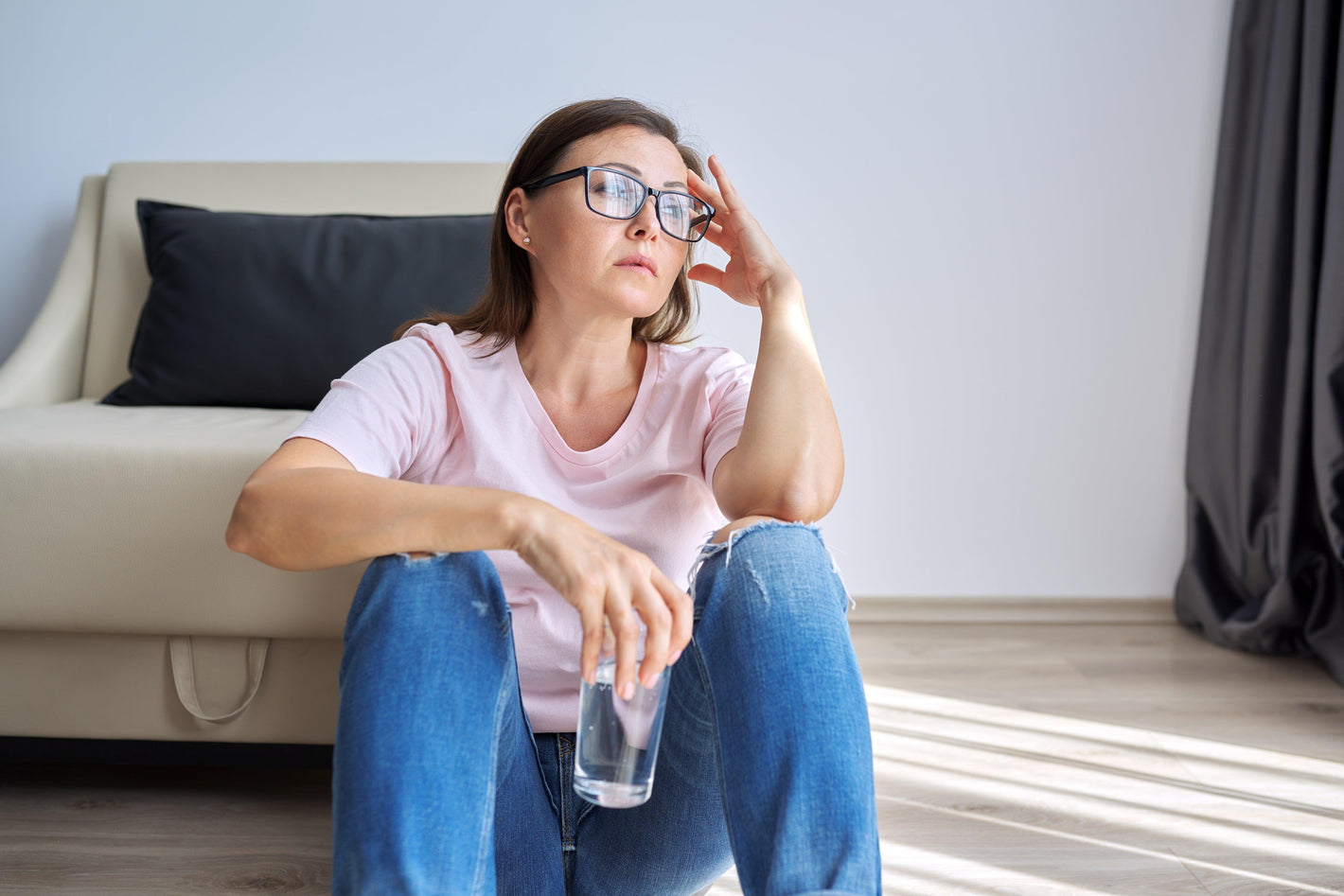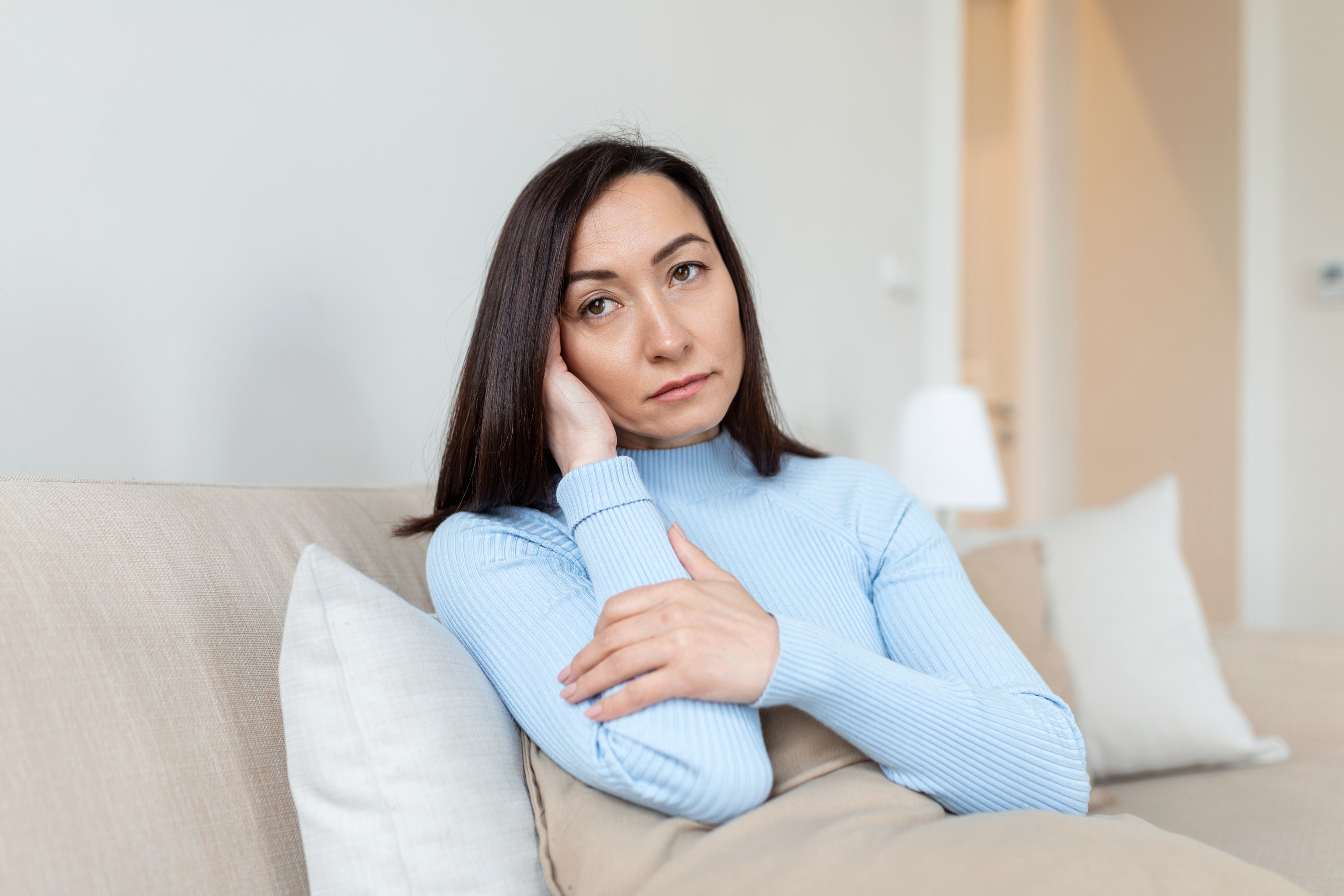How long does menopause last?


The menopausal transition is a continuous process and takes years to complete.

Menopause is when a woman has no periods for 12 consecutive months. For most women, it occurs between 45-55 years of age (median age 51 years), although some women may experience it earlier (early or premature menopause). Menopause can have a very strong impact on women's health and overall well-being. Let's understand the process and learn how long menopause usually lasts.
The term ''menopause'' often creates misunderstanding in some people's minds. They think that after a certain age, there is a sudden stop in ovarian cyclicity, a sudden pause. This is far from true. In reality, menopause is a continuous and long process. It occurs in different stages, and the length of each stage or phase is different for each women.
Menopausal symptoms will come and go until the process is complete.
Menopause starts with a decline in the levels of hormones, e.g., progesterone and oestrogen. However, it is a very long process and lasts between 7 to 14 years. This process, however, is divided into various phases of variable length. These stages are;
The word ''Peri'' means ''around'', so perimenopause means ''around the menopause''. It signals the start of body's natural transition to menopause and marks the end of reproductive life.
It can start as early as the late 30s, but mostly it occurs between the ages of 40-44. In this stage, a woman will experience several bouts of long gaps between periods. The length of this cycle is variable, and levels of oestrogen are likely to go up and down, but they will ultimately move in the declining direction.

Other symptoms associated with this stage are;
Vagina dryness
Disturbed bleeding patterns
Chills and hot flashes
Mood fluctuations
Disturbed sleep
Frequent urination
Low energy
Night sweats
Heart palpitations
These symptoms are normally manageable; however, consult a gynaecologist if they interfere with your routine.
The exact length of perimenopause is variable and depends on age, nutrition, lifestyle, and various other factors, but it is around 4 years. The symptoms of this phase last for years and gradually disappear as the next phase of menopause starts.
Duration also varies with individual symptoms. For example, hot flashes are experienced for a considerably longer time and will continue in the menopause and postmenopausal phases. A study published in the Journal of Mid-Life Health found that hot flashes can last up to 11 years.
There are also variations among various ethnicities. A 2009 study noted that hot flashes are more bothersome and frequent in African women than in Caucasian and Hispanic women.
The same symptoms will also go on with varying intensity and duration in menopause. Some common issues are;
Hot and cold flashes
Vaginal dryness
Low libido
Emotional and psychological issues
The urgent urge to urinate (genitourinary syndrome of menopause-GSM)
Dry skin
Mouth and eyes
Memory issues
Loss of concentration
Hair thinning, Weigh gain etc.
The length of this phase is similar to perimenopause, i.e., 4-5 years. A 2015 study noted that symptoms of menopause can last for an average of 4 years, but 25% of the women continue to experience symptoms past 5 years.

Some symptoms can persist for up to 10 years. You and your physician must develop a comprehensive program to minimise the impact of these symptoms on your life.
If you want to know more about menopause, its causes, its effects on life and management strategies, click here to visit our information page.
The intensity of menopause symptoms will change over time, and the post-menopause phase should be trouble-free unless you develop post-menopausal syndrome (PMS).
Some health conditions and issues experienced during late post-menopause are heart issues, vasomotor symptoms, urogenital atrophy, cognitive decline, osteoporosis etc. These issues occur because oestrogen has important functions in the homeostasis of bone, brain and heart. A withdrawal of oestrogen after menopause can increase these risks.

Similarly, a dry urethra and vagina increase the chances of the urinary tract and vaginal infections because the vaginal fluids have various protective effects.
You can also experience weight gain in the post-menopause phase. We have detailed the information about weight disturbances in another article. Click here to read.
Regardless of the cause and severity of symptoms, there are ways to manage it. Here are some tips that can help you to treat the symptoms of menopause;
Hot flashes can ruin your sleep. Consult the physician to treat it for better sleep. It will help if you sleep in a noise-free, peaceful, quiet, and thermoneutral environment with few distractions, e.g., without electronic gadgets etc.
Don't partake in heavy exercise, drink coffee, tea (or any other caffeine-rich product) or smoke before bed.
A nap during the day can also reduce night-time sleep. So, try to avoid it.
Avoid alcohol and instead drink warm milk before going to bed. Milk has some sleep-inducing compounds, e.g., tryptophan etc.
Several over-the-counter water-based vaginal moisturisers and lubricants are also available. You can use them after consulting the health experts. It will help you to ease the discomfort due to vaginal dryness.
You can manage the hot flashes by using low-dose contraceptives (if still using), using breathing clothes, avoiding spicy foods and keeping your bedroom or home properly ventilated.
Hormone replacement therapy (HRT) can also help to ease the symptoms. It is, however, hormonal intervention and has a variety of advantages as well as disadvantages. Consult the doctor and take his advice before going for it. For more information about HRT, click here.
Menopause will usually begin around the age of 45. After having no menstrual period for 12 months, you enter the post-menopause phase. However, hot flashes and other symptoms can persist for up to a decade or even more.

You can manage these symptoms through various strategies, e.g., hormone therapy. Your physical requirements of proper diet, exercise and routine physical examination will remain the same as before. A healthy routine will help you to manage the symptoms, while a regular visit to the doctor will ensure that serious issues are caught before they become serious.
At Welzo, we are here to help manage the complexity of menopause. Click here to view our Menopause information page and complete an online consultation for treatment options.










Plus get the inside scoop on our latest content and updates in our monthly newsletter.